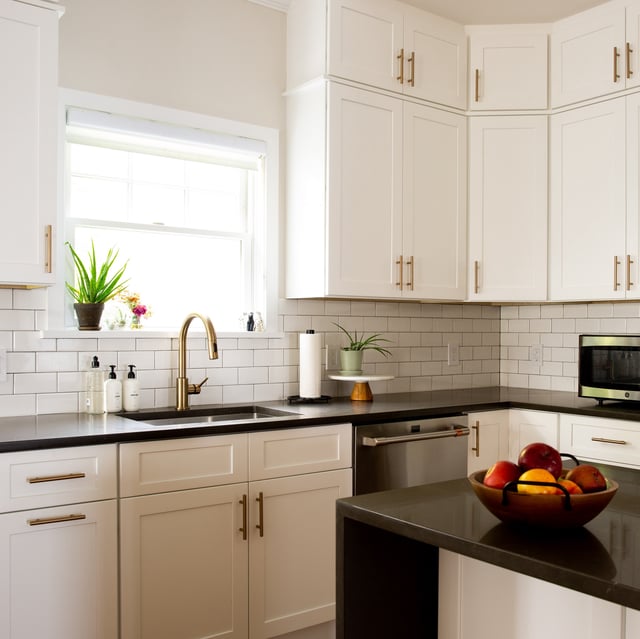
Kitchen
How Long Does a Kitchen Remodel Take?
04.01.2025
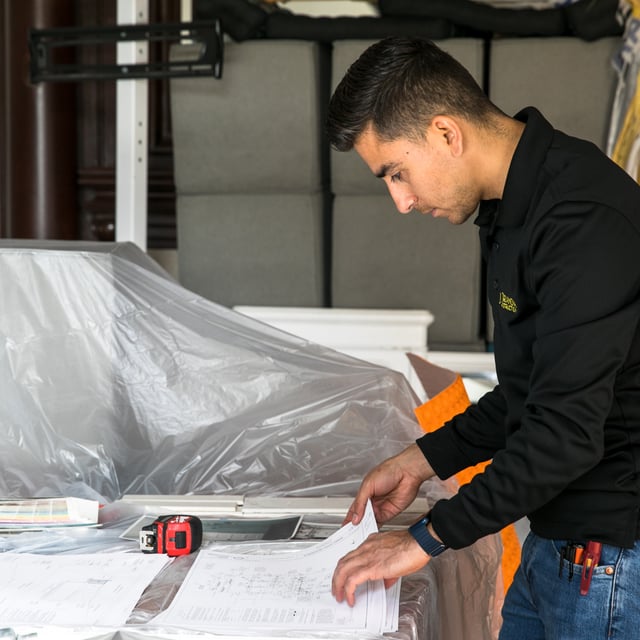
In This Article
Home renovations are an adventure—exciting, transformative, and, yes, a little messy. But with the right organization, they don't have to be stressful. Without a solid plan, projects can spiral into delays, unexpected costs, and that one missing tile that's suddenly backordered for months.
The good news? A little preparation goes a long way. By tackling common challenges head-on, you can keep things running smoothly, stay on budget, and actually enjoy the process. We'll walk you through key steps to reduce stress and keep your renovation on track—so you can focus on the fun part: creating your dream space.
Home renovations are exciting—you finally get to ditch that outdated bathroom tile or knock down a wall for that open-concept kitchen you've been dreaming about. But without a solid plan, things can go sideways fast. (Think: discovering mid-demo that you need a permit you've never heard of or realizing your dream countertops cost as much as a small car.) The key? Preparation.
Before you start swinging a sledgehammer, take time to map out your vision. A renovation plan or vision board—complete with room layouts, material choices, and design inspiration—will keep you focused when decisions get overwhelming. Trust us; you don't want to impulse-buy neon backsplash tiles at the hardware store just because you're tired of making choices.
Next, prioritize. What are your non-negotiables? A bigger kitchen island? Heated bathroom floors? Separate the "must-haves" from the "nice-to-haves" so you can allocate your budget wisely.
Paperwork may not be glamorous, but it's crucial. Make sure you have the right permits, approvals, and designs in place before work begins—because nothing slows down a project faster than waiting on the city to approve that wall removal.
Finally, get organized with a checklist or planning app. Keeping track of timelines, contractor appointments, and material deliveries will help you stay on top of the process. A little preparation now can save you a ton of stress later—so when demo day arrives, you can focus on the fun part (like knocking stuff down).
Home renovations have a sneaky way of making your budget disappear faster than a plate of cookies at an open house. What starts as a "simple refresh" can quickly turn into a full-blown remodel, with costs spiraling out of control. That's why tracking your budget is essential—because no one wants to explain to their bank account why they suddenly needed gold-plated cabinet handles.
First things first: set a realistic budget. Be honest about what you can afford, then add a contingency fund (because surprise expenses are basically a guarantee). Aim for 10-20% extra for those inevitable "Oops, we didn't plan for that" moments—like discovering the previous owner's DIY electrical work is one spark away from a disaster.
Next, stay on top of spending. Spreadsheets, budgeting apps, or even an old-school notebook can help track expenses and payments. Keeping all estimates, invoices, and receipts in one place will save you from future headaches (and awkward contractor disputes).
Also, beware of scope creep—it's real. That fancy new backsplash might make you think, "Well, now we need new countertops… and cabinets… and maybe a wine fridge?" Stay firm on your must-haves; if adjustments are necessary, make trade-offs instead of piling on extra expenses.
A well-managed budget won't just keep your finances intact—it'll help you finish your renovation without feeling like you accidentally signed up for a reality show called Broke & Remodeling.
Learn More: How to Plan Your Renovation Budget
Renovations have a way of warping time. What was supposed to be a "quick refresh" somehow stretches into months, and before you know it, you're celebrating a second holiday season with a half-finished kitchen. Sticking to a timeline is critical—not just for your sanity but also to keep your project (and budget) from spiraling.
The best way to stay on track? Break your project into phases. Think of it like meal prep: demolition, plumbing, electrical work, painting—each step needs its own deadline. That way, you're not left wondering why your contractor vanished for two weeks after ripping up your floors.
Establish clear deadlines for every task and schedule regular check-ins with your contractor. (Yes, this means more emails, but trust us—silence is not your friend when it comes to home projects.) Progress updates help you catch small delays before they snowball into "we won't be done until next year" territory.
Of course, delays happen. Materials get back-ordered, surprise issues pop up (like discovering your walls are made of something suspiciously crumbly), and inspections take longer than expected. That's why you need a buffer in your timeline—plan for a few extra weeks of wiggle room.
A realistic timeline won't just keep your project moving—it'll help you maintain your patience and avoid the dreaded renovation burnout because no one wants to live in a construction zone longer than absolutely necessary.
Renovations can be messy—there's no way around it. Between the dust, debris, and an endless parade of contractors tracking in who-knows-what, your home is about to become a construction zone. The best way to survive? Get ahead of the chaos by decluttering and prepping your space before the first hammer swings.
Step one: clear out the renovation zone. If you've been meaning to purge that junk drawer (or entire basement), now's your chance. Box up anything you want to keep and consider temporary storage for bulkier items—because no one wants to find drywall dust in their winter coats six months from now.
Next, protect what's staying. Cover furniture, appliances, and flooring with plastic sheeting or drop cloths unless you're hoping for an accidental "distressed" look. If your kitchen or bathroom is out of commission, set up a temporary space—your dining table might have to double as a food prep station, and yes, you may be brushing your teeth in the kitchen sink for a bit.
Label everything. Future You will be grateful when you don't have to dig through a dozen mystery boxes just to find your coffee maker. A little organization now will save you serious frustration later.
Prepping your space before the dust flies makes a huge difference. A little effort up front means fewer headaches—and a much easier transition when it's finally time to enjoy your newly renovated home.
Renovations are a team effort, and unless you're planning to DIY an entire house (please don't), you'll be working with contractors, designers, and suppliers. The key to keeping everything on track? Clear communication—because nothing derails a project faster than a game of "I thought you were handling that."
Start by organizing all key contacts. Your contractor, designer, plumber, electrician—anyone involved in the project—should be easy to reach. Save their numbers, emails, and any project notes in one spot so you're not scrambling to find "Mike the Tile Guy" when there's a grout emergency.
Next, create a renovation binder or digital folder. This is your command center for contracts, design plans, permits, and receipts. When a supplier suddenly swears you never ordered those matte black fixtures, you'll have proof in writing (and the upper hand).
A daily or weekly log is also a lifesaver. Keep track of completed tasks, unexpected issues, and any changes made along the way. This isn't just about staying organized—it's about protecting yourself if things go sideways. A simple note like "Contractor said cabinets would be installed by Friday" can be helpful when Friday comes and…no cabinets.
Bottom line: good communication and solid documentation help you avoid unnecessary stress. Plus, staying on top of the details means you'll be the homeowner who actually enjoys their renovation—rather than the one questioning every life decision by week three.
Home renovations are a wild ride—equal parts exciting, frustrating, and occasionally tear-inducing. No matter how well you plan, unexpected hiccups will happen. (Because, of course, the one light fixture you love is backordered until next year.) The trick isn't avoiding stress altogether—it's managing it so your renovation doesn't become a full-blown emotional rollercoaster.
First, accept that things won't always go according to plan. Delays, supply chain issues, and last-minute changes are just part of the process. The more you expect a few bumps along the way, the less shocking they'll be when they inevitably happen. Think of it like travel—you can have the perfect itinerary, but sometimes the flight gets delayed, and you just have to roll with it.
That said, flexibility doesn't mean throwing your budget and timeline out the window. If something isn't working, adjust where you can without letting it spiral. Maybe you swap out one material for a more readily available option, but that doesn't mean adding a surprise home sauna "just because."
Also, don't forget about you in the chaos. Renovations are disruptive, so carve out self-care time. Take breaks from decision-making, escape the construction zone when you can, and treat yourself to a nice meal (especially if your kitchen is temporarily out of commission).
Staying organized and keeping a sense of humor will make the whole process more bearable. Because at the end of the day, it will be worth it—especially when you get to enjoy your newly finished space without the sound of power tools in the background.
You did it—you survived the renovation! The dust is (mostly) settled, the contractors have packed up their tools, and you can finally see your floors again. But before you pop the champagne, there's one final step: making sure everything is actually done—and done right.
Start with a punch list. This is your final to-do list of any unfinished tasks, minor touch-ups, or things that don't look quite right. Maybe there's a crooked outlet cover, a missing cabinet handle, or a suspicious paint smudge that wasn't part of the design plan. Addressing these details now ensures you don't spend the next six months discovering little "surprises."
Next, check for compliance with local building codes. If permits were required, now's the time to make sure everything passes inspection. (Because nothing kills post-reno bliss like finding out your brand-new addition isn't up to code.) Schedule any necessary inspections and confirm that all work meets legal requirements. In the future, you will thank you when you don't have to deal with unexpected fines or last-minute fixes.
Finally, it's time to reclaim your home. Construction dust gets everywhere, so a deep clean is non-negotiable. Wipe down surfaces, vacuum like your life depends on it, and air out the space to clear any lingering smells of paint and drywall.
With everything inspected, fixed, and sparkling clean, you can finally enjoy your newly renovated space—without tripping over stray nails or wondering where your dining table disappeared to.
Learn More: How to Choose a General Contractor
Renovations may come with their fair share of dust, delays, and "Wait, why is this costing more than expected?"moments, but with the right organization, they don't have to be total chaos. From setting a realistic budget (and actually tracking it) to creating a solid timeline, keeping detailed documentation, and preparing your space ahead of time, a little planning goes a long way.
Of course, even the most perfectly organized renovation will hit a few bumps—because that's just how these things go. The key is staying flexible, rolling with the unexpected, and remembering that no project ever goes exactly as planned. The good news? You don't have to do it alone.
There are plenty of apps, checklists, and even professionals who can help you keep things on track.
So, as you dive into your renovation, keep your game plan tight, your patience stocked, and your sense of humor intact. When it's all said and done, you'll have a space that's beautiful and worth the temporary inconvenience.
And if you need more tips, tricks, or expert advice, there's plenty more where this came from—because the best renovation is one you actually enjoy living through.
What is the best way to plan and organize a home renovation?
How do I create and stick to a renovation budget?
What tools can help me manage my home renovation project?
How can I minimize stress during a home renovation?
What should be included in a home renovation checklist?

Renovate confidently with Block
Easily compare quotes from top quality contractors, and get peace of mind with warranty & price protections.
Thousands of homeowners have renovated with Block

4.5 Stars (100+)

4.7 Stars (100+)

4.5 Stars (75+)

Kitchen
How Long Does a Kitchen Remodel Take?
04.01.2025
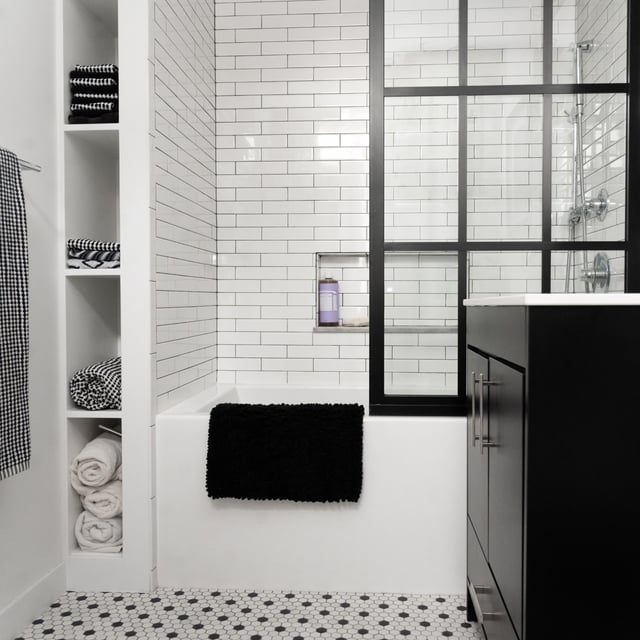
Remodeling
How to Finance a Bathroom Remodel in New Jersey
03.19.2025
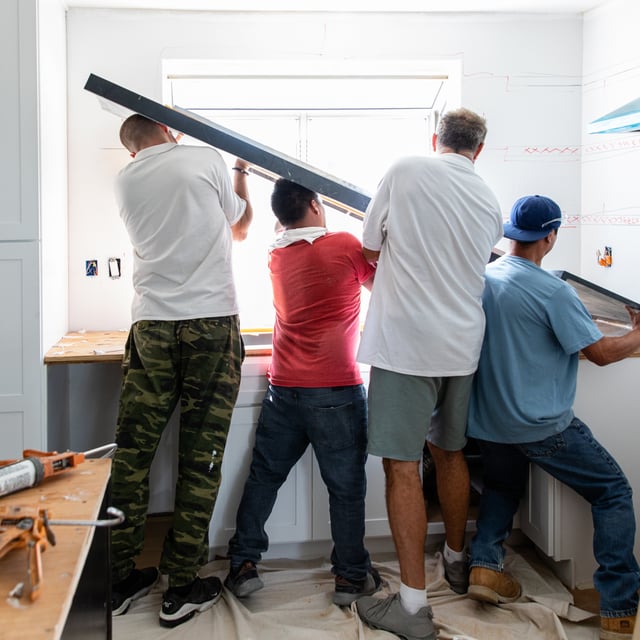
Remodeling
Should You Renovate Before Selling Your Home?
03.19.2025
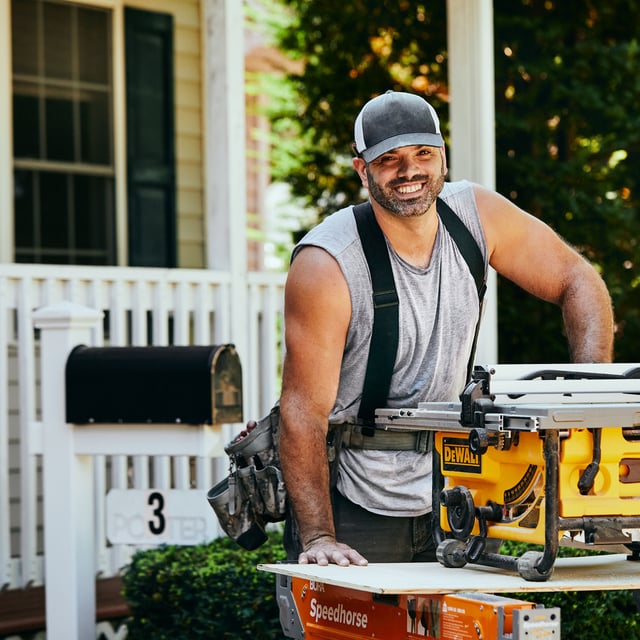
Remodeling
How to Renovate in Boston: A Complete Guide
03.19.2025
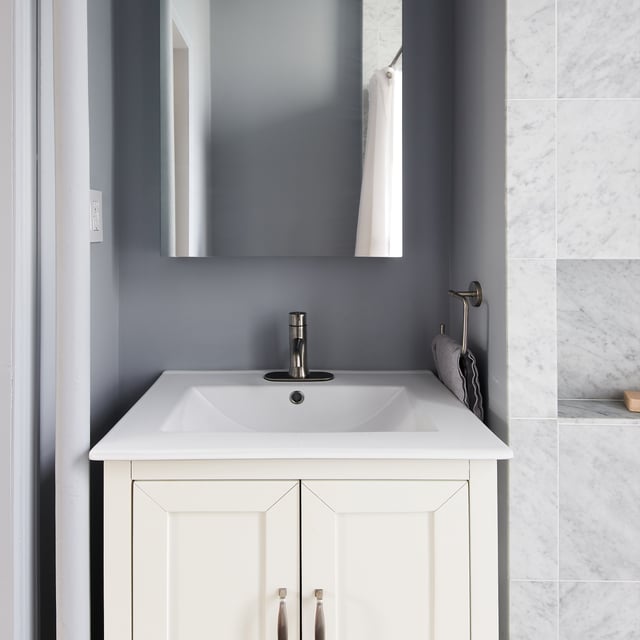
Remodeling
How to Renovate in New York City: A Complete Guide
03.19.2025
Renovate confidently